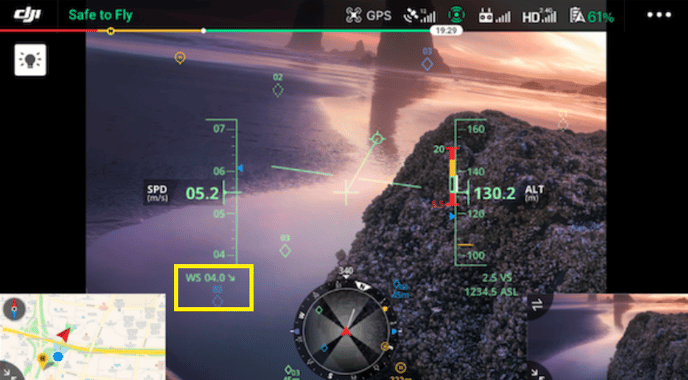Weather Considerations for Flying
Here's what you need to consider about the weather when flying your ROCK LiDAR unit.
Operating Temperature Range
- ROCK R3 Pro V2 and R3 Pro = Approximately -10 to 50 degrees Celsius (14 to 122 Fahrenheit).
- ROCK R2A and ROCK R360 = Approximately -20 to 65 degrees Celsius (-4 to 149 Fahrenheit).
- Operation outside of this temperature range increases the likelihood of data collection error.
- When determining if the temperature is suitable flight consider other factors that affect temperature such as windchill, direct sunlight, etc.
Extreme Weather Temperatures
- Cold batteries can often result in reduced performance meaning you may need to plan for reduced flight times.
- Overheated batteries can have a similar problem.
- Consider making a plan for how to keep your batteries warm or cold as indicated before flight and during/after charging.
Wind
- Each drone/airframe has a wind rating to note the maximum "sustained" and "gusty" winds that the aircraft can handle. NEVER fly in excess of those recommendations for safety sake and because your data is highly likely to be inaccurate.
- Understand your wind:
- Sustained = average wind speed over an amount of time.
- Gusts = fast bursts of wind for short amounts of time. these are the most troublesome as gusts of wind can require rapid flight reactions from your aircraft to stay on the flight path.
- Wind that causes frequent adjusting movements of your aircraft is more likely to result in inaccurate readings or "fuzzy" data sets due to the change in IMU/LiDAR orientation.
- The wind speed at the altitude you are flying at may differ from the wind speed on the ground where you are controlling the drone from. Your remote controller may display measured wind speed by the drone while flying (see image below from DJI Pilot).

LiDAR Data Collection & Snow
- Scanning snow covered ground means you will get the snow contours above the ground, rather than the ground contours so consider if this is acceptable for your project.
Moisture
- ROCK LiDAR units are not rated for flying in moisture including fog, mist, rain and snow. ROCK recommends flying only in dry conditions to prevent damage to your unit.
![ROCK-robotic-community-logo.png]](https://learn.rockrobotic.com/hs-fs/hubfs/ROCK-robotic-community-logo.png?width=250&height=50&name=ROCK-robotic-community-logo.png)